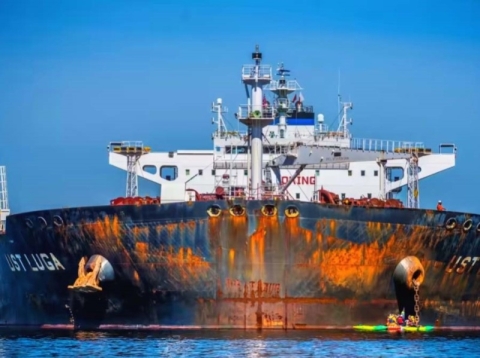Politics
EP calls for an EU crackdown on Russia’s ’shadow fleet’
EU ban imports of Russian fossil fuel
USPA NEWS -
Russia uses old tankers, often uninsured and with unclear ownership, to export its crude oil and petroleum products abroad, despite EU, G7 and international sanctions. These activities have also raised fears over the risk of environmental disasters, including severe oil spills. As part of systematic efforts to undermine EU restrictive measures, the ‘shadow fleet’ provides a key financial lifeline for Russia in its illegal and unjustifiable war of aggression against Ukraine.
In a resolution adopted on Thursday, the European Parliament calls for more targeted measures against these vessels in the next EU sanctions packages, including all individual ships as well as their owners, operators, managers, accounts, banks and insurance companies. It also demands the systematic sanctioning of vessels sailing through EU waters without known insurance and urges the EU to enhance its surveillance capabilities, especially drone and satellite monitoring, and to conduct targeted inspections at sea. MEPs want EU member states to designate ports capable of handling sanctioned vessels carrying crude oil and Liquified Natural Gas (LNG) and to seize illegal cargo without compensation.
End EU imports of Russian fossil fuels
The resolution further calls on G7 countries to better enforce the price cap imposed on Russian seaborne oil, to substantially decrease the oil price cap and to crack down on the loopholes used by Russia to repackage and sell its oil and oil products at market prices. Stressing that the impact of existing sanctions and the financial and military support to Ukraine will continue to be undermined as long as the EU imports Russian fossil fuels, MEPs urge the EU and its member states to ban all imports of Russian fossil fuels, including LNG. Pointing towards the need for much stricter enforcement of current EU sanctions, the text also states that the EU should seriously reassess its bilateral cooperation with third countries that are helping Russia circumvent EU restrictive measures in place, if diplomatic efforts are unsuccessful.
Liability for this article lies with the author, who also holds the copyright. Editorial content from USPA may be quoted on other websites as long as the quote comprises no more than 5% of the entire text, is marked as such and the source is named (via hyperlink).






